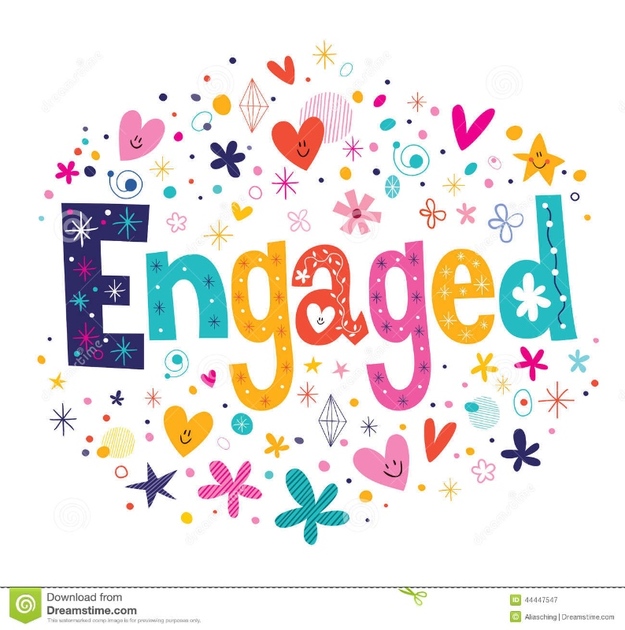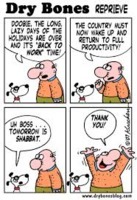
Originally posted in Kol-Isha on 9.1.17
Depending on your background, you may be hearing shidduch recommendations, a friend may set you up, or you may even meet someone at a simcha. In many frum communities, long-term dating is not the norm and many young women feel pressured to ‘decide’ to get engaged after only a handful of meetings.
Frequently, the match is encouraged by parents and shadchanim and outside acquaintances, such as mashgichim or teachers, are called upon to recommend, or vouch, for the boy and/or his family. However, recommendations alone are not sufficient in deciding if this is the person with whom you want to spend the rest of your life.
Several factors are important when choosing a partner. Shared values, similar family backgrounds, and midot that complement one another are just some of the variables that go in to considering whether a ‘match’ is appropriate.
But before making the final decision, there are several questions you may want to ask yourself, and your potential life partner. As someone who sees many young couples struggling with their relationship after marriage, it appears that while siyata dishmaya is important, it may not always be enough.
I often ask people why they chose their partners. Frequently, the answers are generic and have more to do with the type, than with the actual traits of that person. Answers such as ‘I wanted someone from a good seminary/yeshiva, learned family, out of towner, wants to live in Israel, or someone tall’, versus, ‘I love the way she challenges me to think about things, I look forward to his calls and miss him when we are apart, or, I feel safe, comfortable, vital and happy when we are together.’
Sometimes the response is simply , ‘he/she fulfilled the criteria I was looking for, and I saw no reason to say no.’
However, getting engaged should not be the default decision when you found someone who checks off all, or most of the requirements on your list. Just because you turned 20 and all your seminary friends are already married and expecting, does not necessarily mean you are ready for marriage. And even if you are, you need several good reasons to say ‘YES’.
Here are some questions you may want to ask yourself before saying ‘yes’:
Do I know and like myself?
A well-developed sense of self is critical in order to be able to develop an intimate relationship with another. Do you know, and are able to articulate your values, dreams, professional and personal goals? Do you feel comfortable asserting your position if you don’t agree about something?
Malky confided to me that on their second date, Shmuely ordered her a Diet Coke. Although she preferred drinking Sprite, she was too shy to assert herself and was afraid to hurt his feelings by changing the order. If you lack the confidence to know what you want, and say what you want, even if it is just a drink, you may not be ready for marriage.
Does he know me?
Ten years into a troubled marriage and three kids later, Chanie recalled that after their engagement, she and Yehuda were discussing their future. Chanie, who was the valedictorian of her class and planned to get a degree in a science-related field, was stricken when Yehuda suggested she consider taking a course in cosmetology, because his chevrusa’s wife was doing very well in that line of work. ‘He had no idea who I was and I did not yet have the tools to see that’, she says sadly, in retrospect.
Do you feel comfortable being yourself around him-is he your friend?
Six months after the wedding, Leah came to therapy feeling depressed and lonely. Leah relates that on their dates, as instructed by her seminary teacher, she was on her best behavior. She complimented him, and did not bring up topics that could be considered controversial. Since her marriage, she “doesn’t know how to be and feels too uncomfortable to ‘just be herself. ’ When asked who she is comfortable with she says, “my best friend Rochel, of course. I call her every day and we talk for hours.”
Do you know how to resolve an argument?
Have you had a disagreement and if so, do you know how to recover? Are you able to be vulnerable and say, “I think I may have upset you” or, “Let’s resolve this, I don’t want to fight anymore.
Have you discussed the really important things, and can he think for himself?
Are you able to talk about subjects such as finances, where you want to live, and share your feelings about gender roles? Do you have a language to discuss emotions and sensations with each other? Are you able to disclose personal information about yourself and trust that he will keep and honor your confidentiality?
Chava, a delightful and bubbly young woman, relates that feeling that she was becoming closer with Yaakov, she revealed that she sees a therapist regularly to help her with anxiety. Yaakov listened carefully, empathized and seemed able to contain this. Later that night, feeling insecure and confused, Yaakov went straight to his Rav, to determine if this new information should affect his decision. While Chava understood Yaakov’s desire to process this with his Rav, she says, ‘he really should have asked me first.’
Do you know your each other’s triggers?
Do you know what gets him angry or sad and why and does he know that about you? Have you discussed what it was like growing up in your families, and what you family dynamics you most or least appreciated? Do you know how arguments were resolved in his family?
Do you feel safe with him? Is he reliable? Are you curious about him and do you feel he is curious about you? Do you respect each other? Do you give each other empathy when needed? Can you laugh together?
While you have your whole lives to develop friendship, partnership, and emotional and physical intimacy, it is important to be personally prepared with the skills necessary for intimacy. Some of these skills include knowing yourself, being assertive, expecting your boundaries to be respected, and having the capacity to listen, empathize and to be vulnerable. Furthermore, some of this emotional intimacy should be experienced in a positive way with your potential partner, before making the decision to get engaged.
 Previous
Previous

